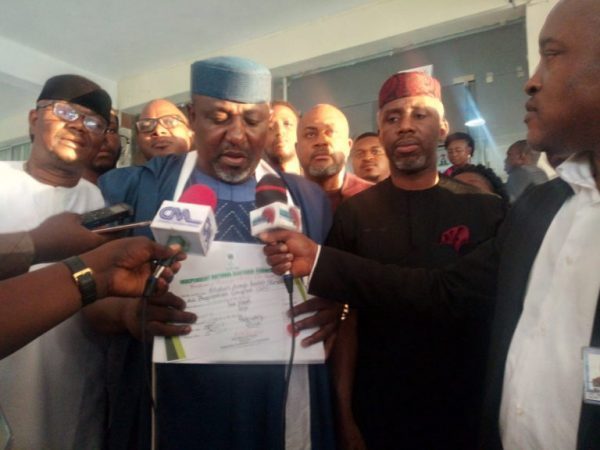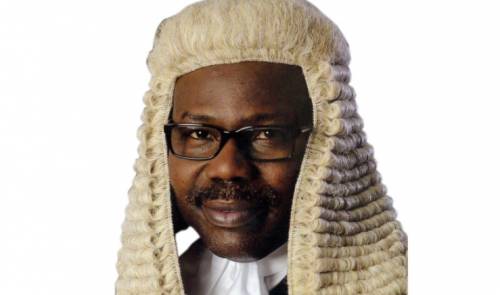INEC finally bows to Court’s order, issues Okorocha Senate Certificate of Return but plans appeal

Information reaching The DEFENDER says immediate past Governor of Imo State, Owelle Rochas Okorocha, has finally retrieved his Certificate of Return from the Independent National Electoral Commission (INEC) after it was withheld since he won the national assembly election in his senatorial district of Imo West.
This media organisation, it will be recalled, had reported Tuesday the worries of some concerned citizens alleging that INEC was playing a game against ruling All Progressives Congress (APC) as it was accused of slowing down on implementing court judgement favouring APC as against the alacrity with which it implemented same when it favoured opposition Peoples Democratic Party (PDP), citing Zamfara and Imo West.

The trouble with the former Imo governor’s senate’s hope may however just be reprieve because INEC is reportedly planning to appeal the judgment on 7 June by Justice Okon Abang of the Federal High Court Abuja that ordered it to issue the certificate.
Festus Okoye, a National Commissioner of INEC and chairman of the Information and Voter Education Committee said the commission has reservations about Abang’s order as there were two contradictory judgments earlier given by two courts in Imo state, which have concurrent jurisdiction with the Federal High Court.
The commission recalled two restraining orders issued by the courts. One in suit No HOW/596/2019 issued on 23 May and another order issued on Tuesday 11 June, in suit No HOW/663/2019.
” It is noted that both are interim orders issued ex parte and not final order of court”, Okoye said.
” In obeying the judgment(Okon Abang’s), the commission is demonstrating once again its longstanding commitment of complying with all orders of court, including those which it may have reservations.
“However the commission must put on record its very profound concerns about the likely consequences of this judgment for our electoral process, in particular and our democracy in general. Obviously, persons who seek elective offices could perceive in this judgment an irrelevance of due process and acting within the law. It is not far fetched that some of them could in future disregard laid down processes, including voting, arm themselves and mobilise thugs and compel returning officers to declare them elected, irrespective of true outcomes of the elections. Moreover, it may become increasingly difficult for the commission
to convince its officials that they are safe to carry out their legitimate functions without fear of being harassed, held to ransom or visited with bodily harm”.









